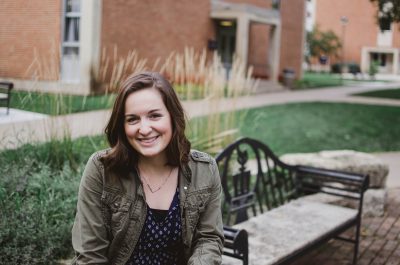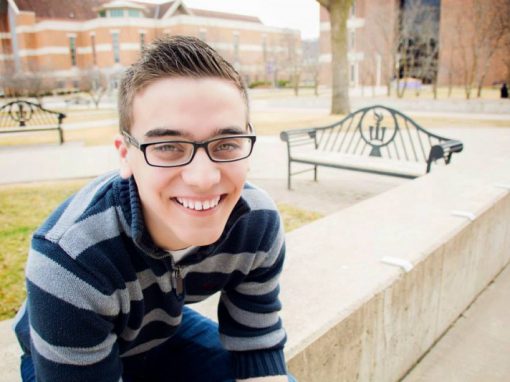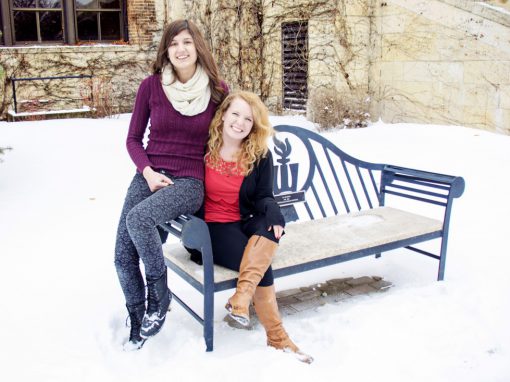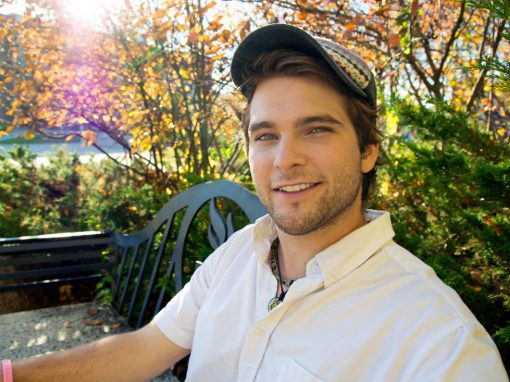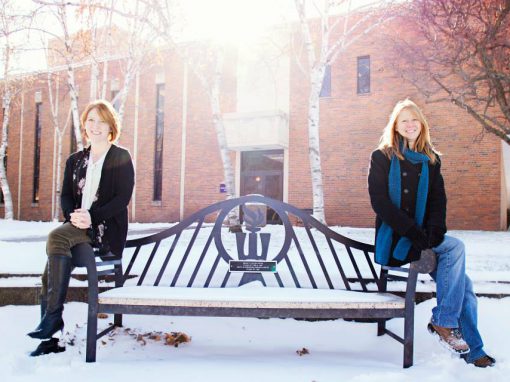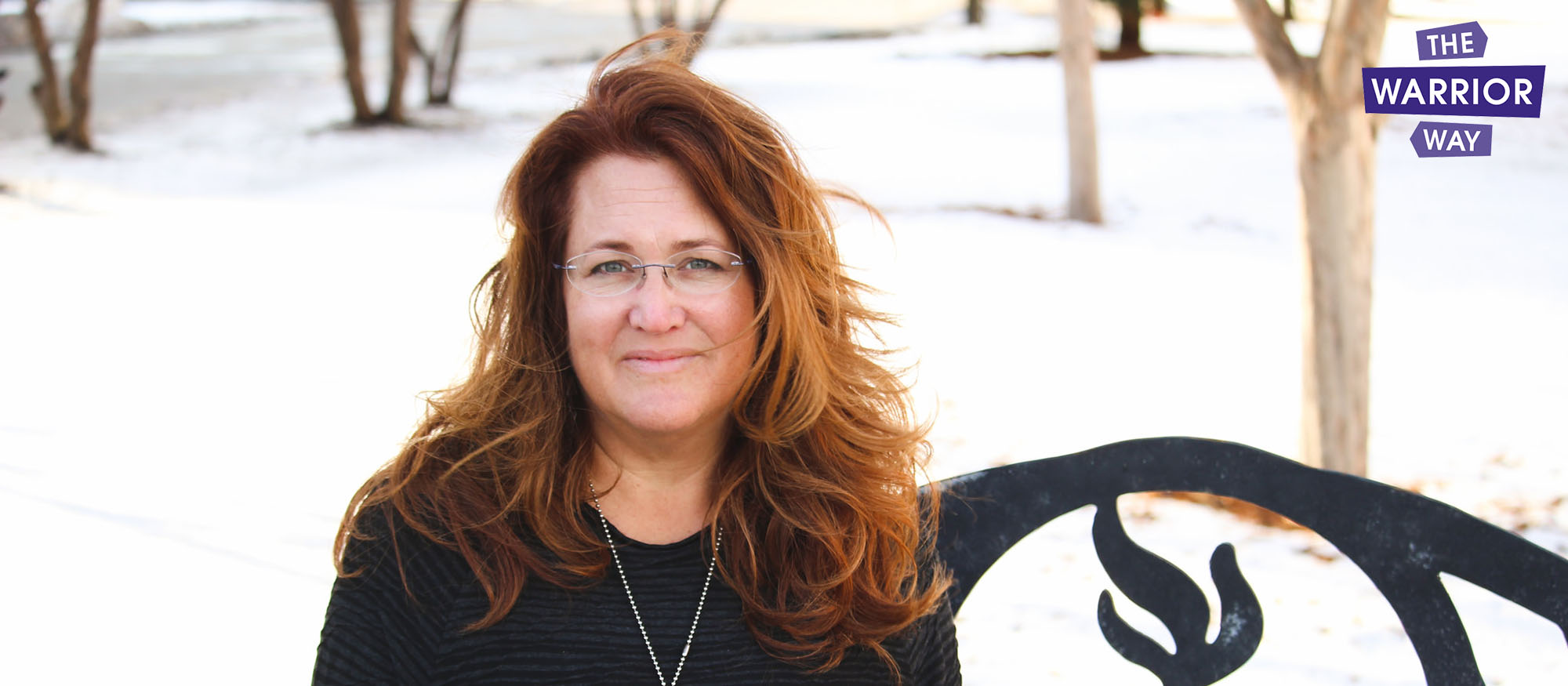
Tamara Berg | Supporting Survivors Above and Beyond
Faculty member from Rochester, MN
Women’s, Gender & Sexuality Studies (WGSS) professor at WSU for 20 years (PhD in English Literature and PhD minor in Women’s & Gender Studies)
Director of Women’s Studies and Grant Project Coordinator
“I’m happy to listen and help, and I know it’s not necessarily a faculty role, but when students are coming to me for resources and I am able to provide them, I will.”
When talking to Professor Tamara Berg, it’s hard not to feel the sense of approachability and openness she emanates. This allows many students to turn to her in their greatest time of distress. Studies show 1 in 5 students will experience some sort of unwanted sexual contact, and Tamara is someone survivors on campus often turn to. She knows this situation all too well, as she was assaulted during her own college career. That’s why she goes above and beyond her duties as a professor to be a resource and advocate for students.
Many have heard the 1 in 5 statistic, but it’s hard for students to realize that out of their group of friends or roommates, one will likely be sexually assaulted. Enduring something like this is unimaginable, but knowing the work Tamara does on campus and the resources that are available can reassure students they will be given the appropriate support, and it creates hope that these numbers will eventually change. Change is what Tamara continues to work toward, and the $600,000 awarded through a federal Gender-Based Violence Grant moves WSU closer to a safer campus.
The first grant, received in 2013, funded the RE Initiative, a 24/7 GBV Confidential Helpline in partnership with the Women’s Resource Center, the PACT Program and employee trainings. The continuation grant allowed the creation of a Coordinator for GBV Prevention and Intervention, now held by Heather Gerdes, an expansion of the bystander intervention program and it includes funding for student positions.
Each year since the awarding of the first grant in 2013, WSU has seen an increase in the reporting of sexual assaults on campus, as the number of assaults is unchanging. This is the first step toward the safer campus Tamara advocates for, and what we should all work towards.
Where do your passions come from and what has moved you to pursue this type of work on campus?
I was sexually assaulted by a stranger in a ski mask in the shower of my dorm when I was a freshman. It was obviously a really horrible experience, but in retrospect how it was handled made it even worse. I reported it right away and the investigating officers asked me questions like why was I showering at night and did I scream. I internalized this victim blaming, but it was unintentional – the officers didn’t understand the effect of their questions. As I became more aware of that and found myself on a college campus, I wanted to work to change that kind of culture and de-stigmatize reporting.
Why do you make yourself a resource for students who experience sexual assault, even though it’s not part of your professional role on campus?
Because I’m openly active in this work and I’m a WGGS professor, students have come to see me as a resource. I teach an intro class on women’s and gender studies, and we talk a lot about sexual violence in the classroom where I talk about being a survivor. Whether students come to me with their own problems or on behalf of a friend, I think they see me as more approachable because I am more open. I listen to them and tell them what resources are available, and because of all of the training I’ve received through the grant, I know a lot more about Title IX regulations. I’m happy to listen and help, and I know it’s not necessarily a faculty role, but when students are coming to me for resources and I am able to provide them, I will.
What allows you to cope and remain motivated when you hear stories of sexual assault on campus?
We have a great team that is growing and includes student advocates, Heather Gerdes as GBV Coordinator and Lori Mikl as Title IX Coordinator. I am not alone. It’s also so rewarding when you know you’ve made a difference for a student. I think back to when I was a student and what limited resources there were, and seeing how far we’ve come at WSU continues to motivate me.
Tell us more about the Gender-Based Violence Grant. What inspired you to write the grant (along with Connie Kamara, Diana Miller and Lori Mikl)?
I wrote the grant with them because I saw an opportunity to combine my interest in gender-based violence on college campuses, teaching and the service that I do for students. $300,000 is a lot of money to a university our size, and it really pushed us forward in productive ways that we could not have done without the grant. Even though the grant is really just helping us comply with federal and state laws, it put power behind creating the Coordinated Community Response Team, engaging the right people and bringing everyone to the table.
Where would you like to see WSU five years from now regarding gender-based violence prevention?
I’d like to see us with a student-centered and welcoming resource center that students could feel comfortable walking into, whether they needed to talk to a confidential advocate, ask questions for a friend or just write a report on sexual assault on campus. It’s important to have that physical space because it’s another way to de-stigmatize GBV; it’s a way to disrupt culture saying survivors should be silent. It’s hard for me to believe right now that we still don’t have an actual resource center for GBV survivors. This is something that I’m pushing for, and I hope we hear from students because they can apply pressure and urgency to a situation.
Why do you think resources are scarce at universities for sexual assault victims, and what is being done at WSU to improve this?
A lot of the time universities don’t want to admit that sexual violence is an issue on their campus. However, it really means we understand that there is a nation-wide problem, and we’re committed to being a leader to solving that problem. But, I understand the hesitancy to see it that way, as people don’t know how to frame sexual assault. They’re afraid it will reflect poorly on the university, when I think it’s the opposite. President Scott Olson has been a leader in understanding this. He will actually be attending our training in February, and, of 28 grantee campuses that are going to be at the training, he is the only college president attending.
What is one thing people on campus and in the community can do to be part of the solution?
Commit to the “It’s on us” idea. We are the ones who create the campus we want to be a part of. It’s thinking about the university and advocating for a place that is safe, a place where we respond appropriately if someone is hurt.
If you could invite anyone to sit on this bench and have a conversation, who would it be and what would you talk about?
At this moment, because I just returned back from the March on Washington, I would love to sit and talk with the young woman who was part of the organizing team, Tamika Mallory. The speech she gave at the march was absolutely amazing, and I think she’s going to be a huge leader. I would ask her about what she sees as the key issues facing young people today, what she sees as possible strategies to work productively on those issues and what she thinks about GBV on college campuses.
Interviewed and edited by Allison Mueller ’17 and photographed by Brian Waldbillig ’18
To nominate someone in the WSU community — faculty, staff, student, alumni or friend of WSU — for Warrior Way, or if you have other feedback to share, please email Mollee Sheehan, director of web communications: msheehan@winona.edu
